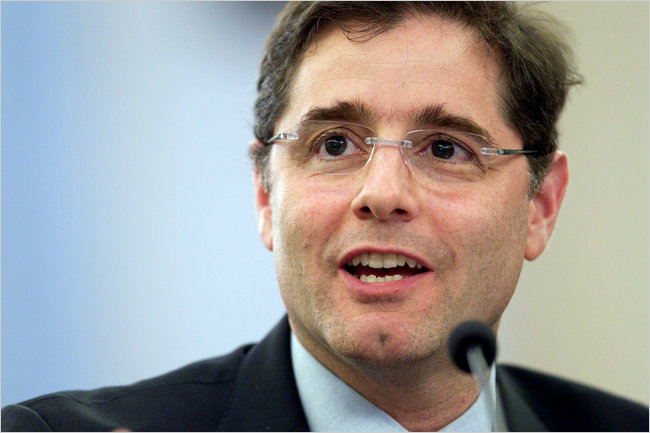Sorry, American Internet service providers: Federal Communications Commission chairman Julius Genachowski is still not impressed. In a guest editorial written for Forbes, Genachowski implored ISPs in the United States to set their horizons higher and to start investing in building out broadband networks capable of moving data at gigabit speeds. At the same time, Genachowski scolded ISPs that have called gigabit networks unnecessary, and particularly singled out National Cable & Telecommunications Association CEO Michael Powell, who recently described achieving gigabit speeds as an “irrelevant exercise in bragging rights.”
“Gigabit networks can enable genetic sequencing to treat cancer patients, immersive and creative software to support lifelong learning from home, and ways for small businesses to take advantage of Big Data,” Genachowski wrote. “Greater network speeds will certainly lead to unexpected new inventions. That’s been consistently true since the Internet began.”
American ISPs have recently come under fire from a wide variety of critics, including Pulitzer Prize-winning reporter David Cay Johnston and Cardozo School of Law professor Susan Crawford, for allegedly stifling competition by sectioning off regions of the United States where they simply do not compete with one another. Crawford, in particular, recently said that most major ISPs are very similar to the railroad and steel monopolies of the 19th century, in that the providers face minimal competition in areas where they operate and benefit from high barriers to entry for prospective new providers.






